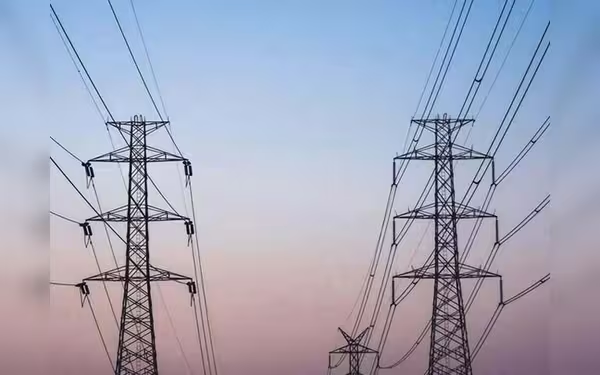Saturday, November 16, 2024 05:31 PM
BMP Urges Structural Reforms in Pakistan's Power Sector
- BMP calls for urgent reforms in power sector.
- DISCOs face alarming losses impacting national treasury.
- High electricity rates lead to increased power theft.
 Image Credits: dailytimes_pk
Image Credits: dailytimes_pkBMP emphasizes urgent reforms in Pakistan's power sector to address DISCOs' losses and high electricity tariffs.
The power sector in Pakistan has been facing significant challenges, leading to a call for urgent reforms. The Federation of Pakistan Chambers of Commerce and Industry’s Businessmen Panel (BMP) has highlighted the necessity for large-scale structural changes in the power sector. This comes in light of the alarming losses faced by power distribution companies (DISCOs), which have resulted in billions of rupees being drained from the public exchequer. The BMP emphasizes that modern technology and a customer-oriented approach are essential to control line losses and improve overall efficiency.
Mian Anjum Nisar, the BMP Chairman and former president of FPCCI, pointed out that the high electricity rates are pushing consumers towards power theft, as many find the tariffs unaffordable. He noted that the performance of DISCOs throughout the fiscal year 2023-24 has been disappointing, with expected reforms failing to materialize. The current setup of DISCOs appears incapable of delivering the necessary improvements, as evidenced by the overall actual losses of 17.21% during FY2023-24, compared to 15.68% in the previous year.
Moreover, the actual transmission and distribution (T&D) losses are significantly higher than the allowed limit of 11.31%. While a few DISCOs, such as FESCO, GEPCO, and K-Electric, have managed to keep their losses within the NEPRA targets, the majority have exceeded these limits, leading to a staggering loss of over Rs165 billion to the national treasury. Nisar pointed out that DISCOs are intentionally drawing less power than their actual demand, despite having an adequate quota, which is a concerning practice that undermines the system.
In terms of recovery rates, only IESCO has achieved a remarkable 100% recovery target for FY2023-24. Other DISCOs like GEPCO, FESCO, and MEPCO are close behind, with recovery rates between 97% and 98%. However, some DISCOs, such as QESCO, have been identified as the worst performers, with a recovery rate of only 35.8%. This disparity in performance raises questions about the management and operational strategies employed by these companies.
Furthermore, none of the DISCOs have met the System Average Interruption Frequency Index (SAIFI) standard of 13, indicating a need for improvement in service reliability. Nisar reiterated that without substantial measures from the government, including a reduction in fuel prices and a decrease in the key policy rate to single digits, the situation is unlikely to improve. The BMP has called for significant cuts in import duties and the waiver of various taxes, which are burdensome during this economic crisis.
The BMP's call for reform in the power sector is not just a plea for change; it is a necessary step towards ensuring the sustainability of the industry and the livelihoods of millions of workers. The government must take concrete actions to support small and medium enterprises (SMEs) and create a more favorable environment for economic growth. Only through collaborative efforts can Pakistan hope to overcome the challenges facing its power sector and secure a brighter future for its citizens.













